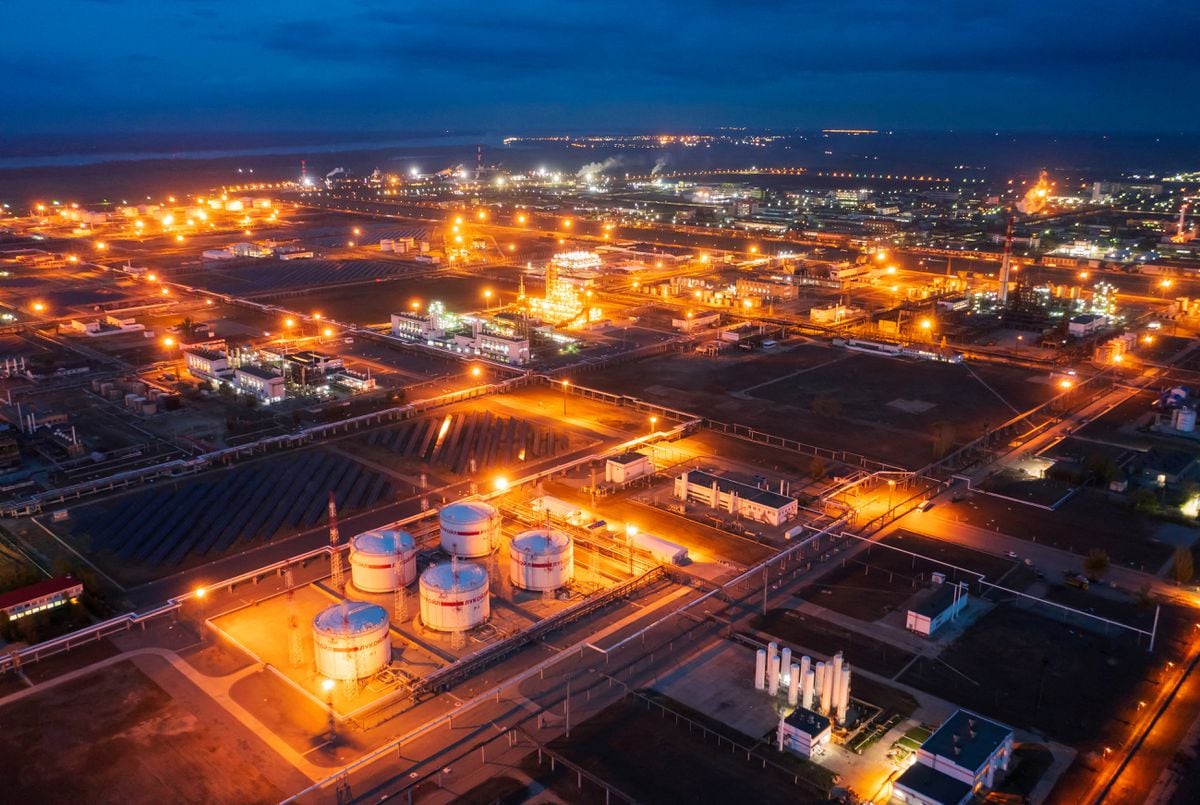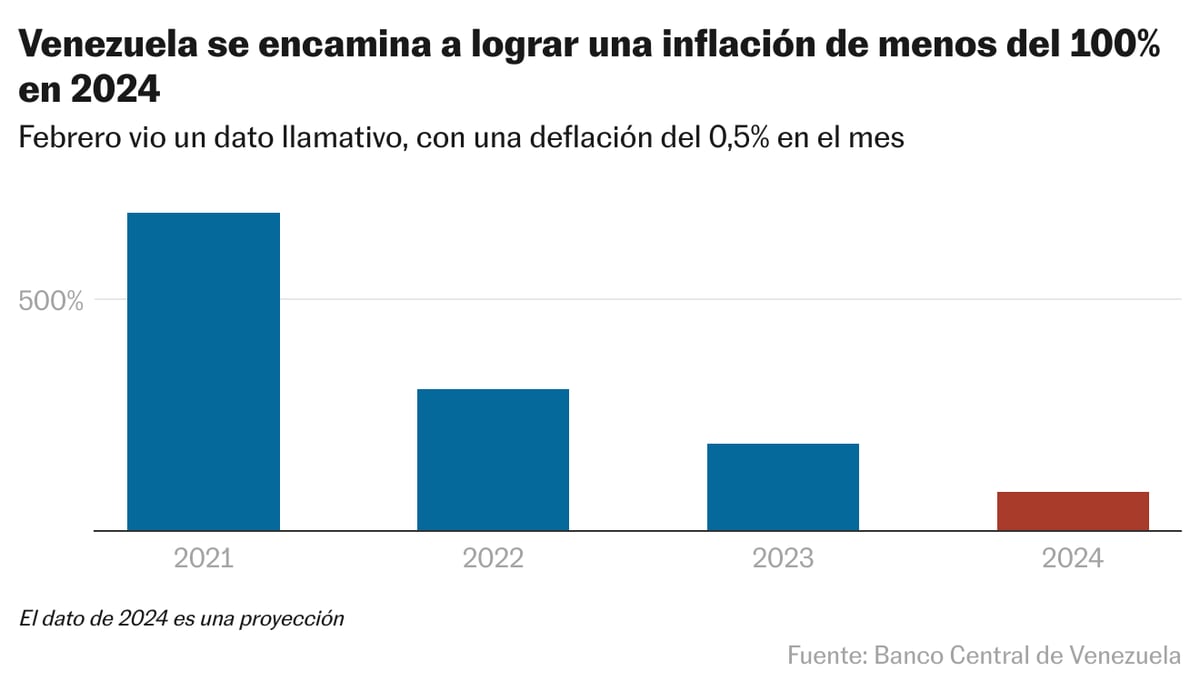The severe swelling in the price of raw materials —first, due to the growth in demand in full recovery;
later, due to the Russian invasion of the Ukraine—will continue, at least, until the middle of this decade.
Oil will have to wait until next year to drop below $100 a barrel.
And from then on, the downward path will be anything but rapid:
Brent
will average $92 in 2023 and $80 in 2024, according to a projection released Tuesday by the World Bank.
Both figures are notably above the $60 average of the last five years.
Something similar will happen with the other two key fossil fuels in the global energy matrix: natural gas —whose average price in Europe this year will be double that of last year— and coal —which will average 80% more than in 2021—.
This joint takeoff of all fossil energy sources leads the body chaired by David Malpass to classify what has happened in the last two years as the "greatest price increase since the 1973 oil crisis."
Although the scale of this shock is substantially smaller than the one that occurred then, when crude oil quintupled its price in a few months, its effects "could be more lasting."
This energy crisis is, according to the study presented this Tuesday, different from all the previous ones in three fundamental aspects: there are fewer substitution options —all fossil energy sources have become more expensive at the same time—, consumers are less sensitive to price — which suggests less destruction of demand – and governments have reacted by applying tax cuts or applying fuel subsidies, “which could increase prolonging the crisis by increasing energy demand.”
The answer, say the World Bank economists, should be something else: more energy efficiency, more and better insulation of buildings, and an acceleration in the development of "energy sources free of carbon dioxide emissions, such as nuclear and renewable”.
food and metals
The rope of high prices continues and will continue to tighten the entire range of basic products, not only energy ones, before beginning to moderate from next year.
“In general terms, we are facing the biggest commodity price shock since the 1970s. And, as happened then, it is being aggravated by an increase in trade restrictions [on exports] of food, fuel and fertilizers. ”, says Indermit Gill, vice president of the organization for Equitable Growth, Finance and Institutions.
"This has started to raise the specter of stagflation [low growth and high rate of price growth]," she admits.
Food will close 2022 with a rise of more than 23% —a rise that will be especially pronounced in the case of vegetable oils and cereals— to begin to deflate in 2023, when the multilateral sees a fall of 10%.
The group of minerals and metals, for its part, will become more expensive by 16% this year to also fall by 10% next year.
But without this clearly upward trend in one area, it will be energy (+50% in 2022; -12% in 2023) and fertilizers (+69% and -11%, respectively), which in turn results in higher food inflation in the future.
This base scenario, however, may vary.
"If the war continues, prices could end up being even higher and more volatile," underline the economists of the Washington-based agency.
The persistence of these high values, they underline, "will have a significant impact, both economically and humanitarianly, (...) and threaten to slow progress in reducing poverty: inflation will have a broader impact on lower-income households than the richest, and the damage will be greater in the poorest countries, particularly those that import more food and fuel.









